It was already pointed out in comments: There are no global slots.
On the other hand, since Qt5 you can connect any method to a signal even if it's not remarked as slot. You can even connect global functions and lambdas to a signal. So, if the requirement for "SLOT" is dropped (and is called, may be, "signal handler" instead) it may provide what you (probably) are asking for.
Sample code testQSpinBox.cc:
// Qt header:
#include <QtWidgets>
// function with matching signature
void f(int value)
{
qDebug() << value;
}
// function with non-matching signature
void g(const char *text, int value)
{
qDebug() << text << value;
}
int main(int argc, char **argv)
{
qDebug() << "Version:" << QT_VERSION_STR;
// main application
QApplication app(argc, argv);
qDebug() << QApplication::style()->objectName();
// setup GUI
QWidget qWin;
QVBoxLayout qBox;
QSpinBox qSpinBox1;
qBox.addWidget(&qSpinBox1);
QSpinBox qSpinBox2;
qBox.addWidget(&qSpinBox2);
QSpinBox qSpinBox3;
qBox.addWidget(&qSpinBox3);
qWin.setLayout(&qBox);
qWin.show();
// install signal handlers
// connect f() to qSpinBox1::valueChanged
QObject::connect(&qSpinBox1,
(void (QSpinBox::*)(int))&QSpinBox::valueChanged,
&f);
// connect lambda to qSpinBox2::valueChanged
QObject::connect(&qSpinBox2,
(void (QSpinBox::*)(int))&QSpinBox::valueChanged,
[](int value) { qDebug() << "qSpinBox2:" << value; });
// use lambda as adapter for function g()
QObject::connect(&qSpinBox3,
(void (QSpinBox::*)(int))&QSpinBox::valueChanged,
[](int value) { g("qSpinBox3:", value); });
// run application
return app.exec();
}
To compile it in cygwin, I prepared a QMake file testQSpinBox.pro:
SOURCES = testQSpinBox.cc
QT += widgets
Compiling and testing with g++:
$ qmake-qt5 testQSpinBox.pro
$ make
g++ -c -fno-keep-inline-dllexport -D_GNU_SOURCE -pipe -O2 -Wall -W -D_REENTRANT -DQT_NO_DEBUG -DQT_WIDGETS_LIB -DQT_GUI_LIB -DQT_CORE_LIB -I. -isystem /usr/include/qt5 -isystem /usr/include/qt5/QtWidgets -isystem /usr/include/qt5/QtGui -isystem /usr/include/qt5/QtCore -I. -I/usr/lib/qt5/mkspecs/cygwin-g++ -o testQSpinBox.o testQSpinBox.cc
g++ -o testQSpinBox.exe testQSpinBox.o -lQt5Widgets -lQt5Gui -lQt5Core -lGL -lpthread
$ ./testQSpinBox
Version: 5.9.2
"fusion"

(I clicked the Up-button of each spin box to force valueChanged signals.)
1
qSpinBox2: 1
qSpinBox3: 1
Note:
There is a specialty concerning QSpinBox::valueChanged() – there are actually two of them:
void QSpinBox::valueChanged(int i);
void QSpinBox::valueChanged(const QString &text);
Hence, if we provide the signal in QObject::connect(), the method identifier is ambiguous. We have to provide a "method pointer cast" to solve the ambiguity:
#if 0 // Ambiguity:
QObject::connect(&qSpinBox1, &QSpinBox::valueChanged, &f);
#else // Solve ambinguity:
QObject::connect(&qSpinBox1,
(void(QSpinBox::*)(int))&QSpinBox::valueChanged,
&f);
#endif // 0
Signals with multiple signatures are the few exceptions in Qt. Usually, that ugly method pointer cast thing is not necessary to connect a signal in Qt 5 style.
Btw. in my answer to SO: QPushButton doesn't update when setDown is called, I wrote code which supports Qt 4 and Qt 5. So, this might be interesting concerning old-fashioned Qt SLOTs in opposition to modern Qt 5 signal handlers.
